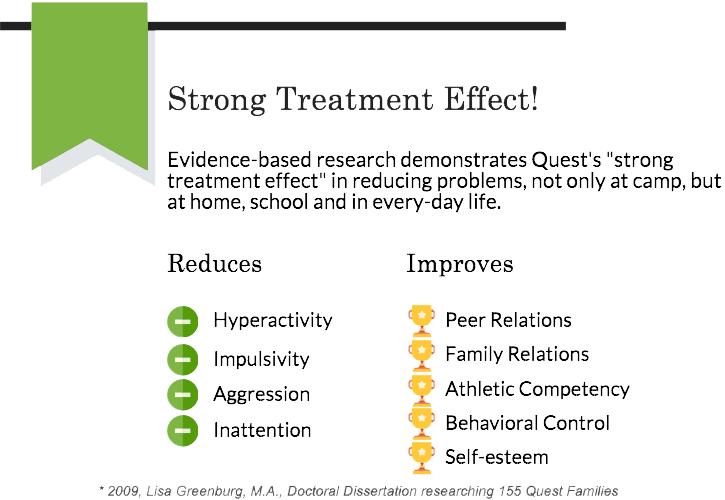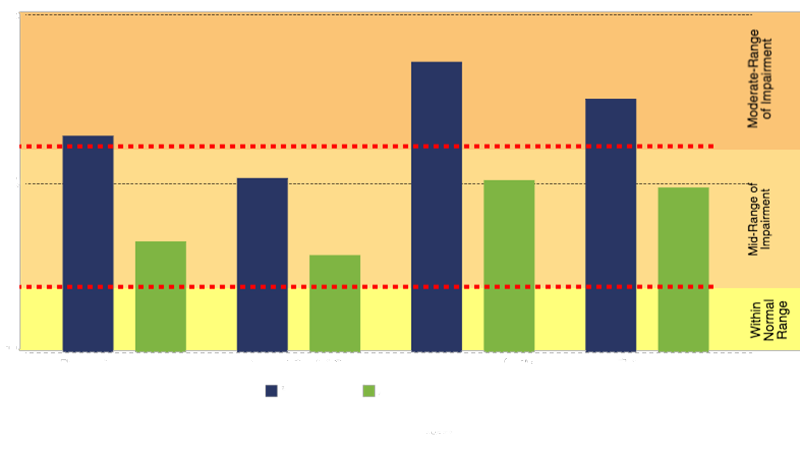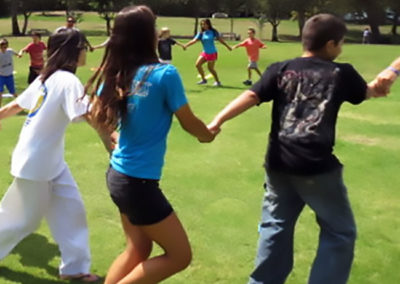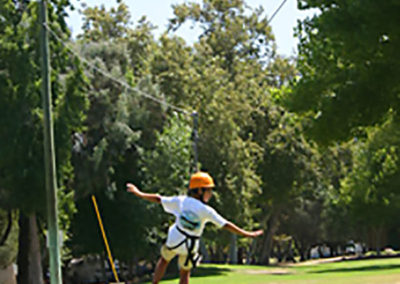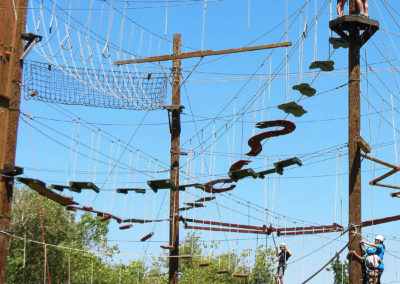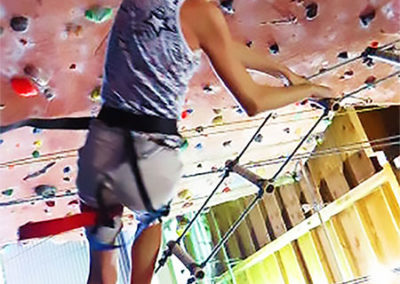Research & Support
Research across 4 studies confirms campers’ benefit from the Quest program!
Quest was found to provide effective individualized treatment for children 6 to 18 years old with mild to moderate behavioral, emotional and/or social problems.
We are very proud at Quest to have evidence-based research that supports what parents and professionals have seen since 1989!
Strong, Effective Treatment
The results from Lisa Greenberg’s study demonstrated treatment benefits rarely seen in psychological programs. Children who come to Quest struggling to make friends, handling frustration and conquering their fears, leave with increased self-esteem and improved peer and family relationships.
Their fears and frustrations are reduced and behavioral problems become less influential in their lives. In the research study, gains were found across diagnostic, ethnic, age, income, medication status and gender groups and across clinical importance measures, including reliable change, clinical equivalence, effect size, and global impairment indices.
Quest Therapeutic Camp demonstrates large effects in improving overall functioning in different settings and medium effect sizes in reducing problem behaviors and improving social skills based on parent and counselor report.
Want more information? Contact us today!
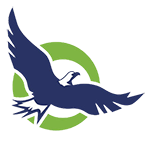
Quest Therapeutic Camps of Southern California
5212 Katella Ave., #104
Los Alamitos, CA 90720
Phone: (714) 490-3428
Fax: (562) 493-1684
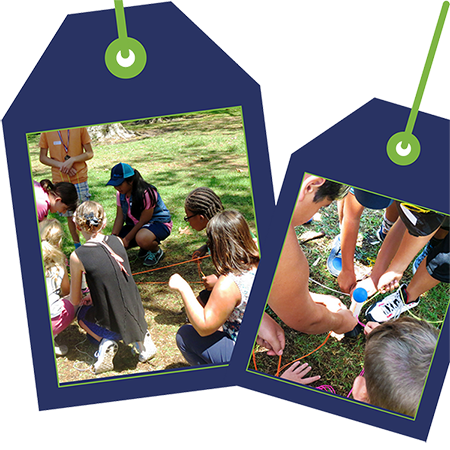
Significant, Positive Gains!
A 2-year study of Quest Therapeutic Camps of Southern California demonstrates significant positive gains for campers who attend Quest, consistent with previous research on the Quest Therapeutic Model.
❌ Aggression
❌ Impulsivity
✅ Social Cognition
✅ Social Awareness
✅ Social Communication
✅ Social Problems
✅ Behavioral Concerns
2015, Byron K. Smith, M.S., Thesis Researching 47 Quest Campers
Strong, Effective Treatment
The results from Lisa Greenberg’s study demonstrated treatment benefits rarely seen in psychological programs. Children who come to Quest struggling to make friends, handling frustration and conquering their fears, leave with increased self-esteem and improved peer and family relationships.
Their fears and frustrations are reduced and behavioral problems become less influential in their lives. In the research study, gains were found across diagnostic, ethnic, age, income, medication status and gender groups and across clinical importance measures, including reliable change, clinical equivalence, effect size, and global impairment indices.
Quest Therapeutic Camp demonstrates large effects in improving overall functioning in different settings and medium effect sizes in reducing problem behaviors and improving social skills based on parent and counselor report.

Significant, Positive Gains!
A 2-year study of Quest Therapeutic Camps of Southern California demonstrates significant positive gains for campers who attend Quest, consistent with previous research on the Quest Therapeutic Model.
Reduces







* 2015, Byron K. Smith, M.S., Thesis Researching 47 Quest Campers
In 2018, statistical differences between counselors’ initial baseline ratings and those after 2,4, and/or 6 week ratings reflected strong treatment effects in social reasoning, social interactions, emotional regulation and peer relationships. Quest counselors provided ratings of our campers’ emotional and social skills from the baseline on their second day at camp to those at 2 and 4 weeks. Statistical analysis again indicated a strong treatment effect in all areas.
Improvement in Social Function
Forty-seven campers participated in the Assistant Director, Kyle Smith’s, thesis study over the course of two summers. Among CBCL sub-scales Social Problems and Aggressive Behavior significantly improved.
For the SRS-2, improvements in scores on the Social Awareness, Social Cognition, and Social Communication sub-scales and its total score were significant. Finally, changes in scores on the parent questionnaire were significant.
The study’s improvements in social functioning and reduction of aggressive behavior demonstrated that the therapeutic camp treatment modality can bring about significant change over the course of a few weeks.
In particular, it further substantiates the findings regarding The Quest Therapeutic Model and specifically shows it as a promising treatment modality for ADHD, high functioning autism (previously known as Asperger’s Disorder), and other problem behaviors.
Read the Research!
Download and explore the Thesis supporting the effectiveness of Quest’s Proven Therapeutic Model. Campers showed significant, positive gains and improvement in social function.
Children who come to Quest struggling to make friends, handling frustration and conquering their fears, leave with increased self-esteem and improved peer and family relationships.
Improvement in Overall Functioning, Attitude, Social Awareness, Social Interactions and Emotional Functioning
Counselor Ratings were compiled in the summer of 2018 for Quest’s Bay Area program and analyzed by Peter Gillette, Ph.D, of the Schwab Dyslexia and Cognitive Diversity Center and Institute of Human Development, U.C. Berkeley. Based on our Camper Evaluation form, Dr. Gillette analyzed five major areas identified: Overall Functioning, Attitude, Social Awareness, Social Interactions and Emotional Functioning.
Results reflected a strong treatment effect in all areas when looking at the difference between baseline and 2 week rating and 2 to 4 week ratings. Differences between 4 and 6 week ratings typically were not significant, indicating that the therapeutic effect was most significant in the first four weeks of attendance. While the ANOVA results for the “Partial Eta Squared” above 0.1 are considered a “large effect”, counselor ratings reflected an effect significantly above this level, indicating the summer program provided significant treatment for children with mild to moderate emotional and social problems.
Read the Research!
Download and explore the Thesis supporting the effectiveness of Quest’s Proven Therapeutic Model.
Parent Report of Aggression and Social Problems
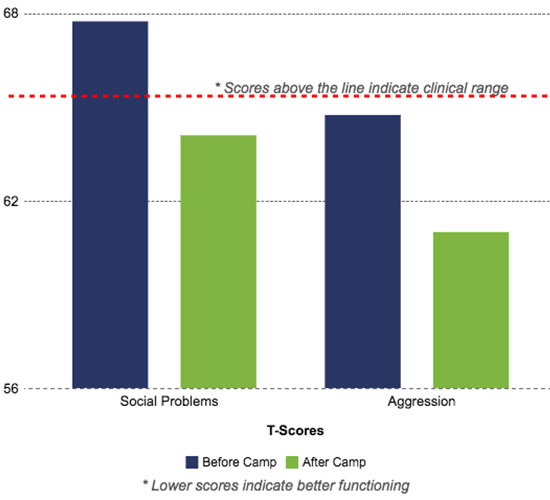
The decrease in CBCL aggression corroborates past findings related to aggression in children with ADHD. Theories of ADHD link aggression and emotion regulation to deficits in behavior inhibition.
Elements of Quest Camp – like goals related to impulse control, token-based reinforcement, and teaching of critical thinking strategies – are designed to address deficits in behavioral inhibition.
It is possible that these interventions are responsible for improved impulse control, resulting in decreased aggression. Another explanation for the changes in aggression could be related to Quest’s emotion regulation interventions – like coping skills training and emotional labeling.
In the camp setting, opportunities to use more appropriate coping skills – like deep breathing or progressive relaxation – are plentiful, and campers who use such skills are reinforced.
Parent Report of Social Responsiveness Improvement
The social problems sub-scale of the CBCL and the social awareness, social cognition and social communications sub-scales of the SRS-2, as well the SRS-2 total score, improved significantly. These improvements suggest that Quest Camp may shrink the social deficits observed in children with ADHD and are endemic to children with high-functioning autism.
The sub-scales that showed significant improvement coincide with the emphases of Quest’s social interventions. The social awareness sub-scale measures a child’s ability to observe social cues, the social cognition sub-scale is a representation of a child’s ability to interpret social cues, and the social communication sub-scale measures a child’s ability to communicate socially.
All of these concepts are routinely targeted by Quest Camp interventions through work with peers, modeling and reinforcement by counselors, and the cultivation of an environment conducive to practicing new social skills.
Parent Estimates of Functioning
Observation of Change
Scores on the 15-item parent measure also improved significantly. This measure represented an aggregate of behavioral concerns parents might have about their child.
Though limited, this change suggests that, overall, parents observed an improvement in children’s behavior. This speaks to the generalization of the camp’s treatments to the home setting.
See What Parents Are Saying!
Though limited, this change suggests that, overall, parents observed an improvement in children’s behavior.
This speaks to the generalization of the camp’s treatments to the home setting.
🌟 Overall summer program!
🌟 Expertise and leadership of Director!
🌟 Ability to keep your child’s attention!
🌟 Field trips!
🌟 Supervision and safety!
🌟 Support and encouragement!
🌟 Flexibility and creativity of staff!
🌟 Quest’s understanding of your child!
🌟 Your child’s enjoyment!
🌟 Quality of all staff!
🌟 Access to staff!
Get in Touch!
Interested in learning more about Quest?
Phone
Fax
(562) 493-1684
Office
5212 Katella Ave. #104
Los Alamitos, CA 90720
ABOUT QUEST
Quest is a unique, evidence-based program that combines recreational activities, behavioral milieu and group psychotherapy. We welcome kids, ages 6 to 18, with mild to moderate social, emotional and/or behavioral difficulties. We are proudly accredited by the American Camp Association!
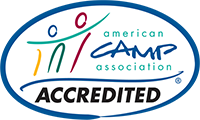
FOLLOW US
ABOUT US
LOCATION & PRICING
© 2019 Quest Therapeutic Camps of Southern California.
All rights reserved. | Terms & Conditions.
